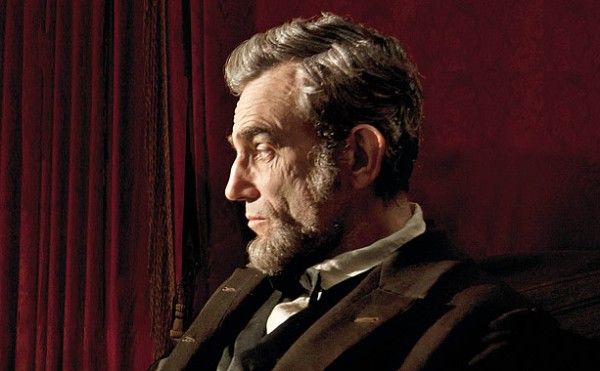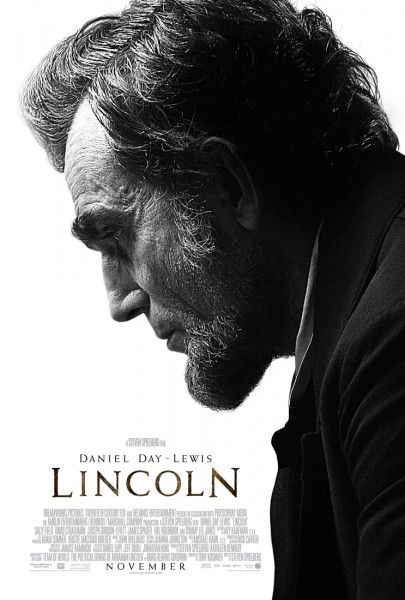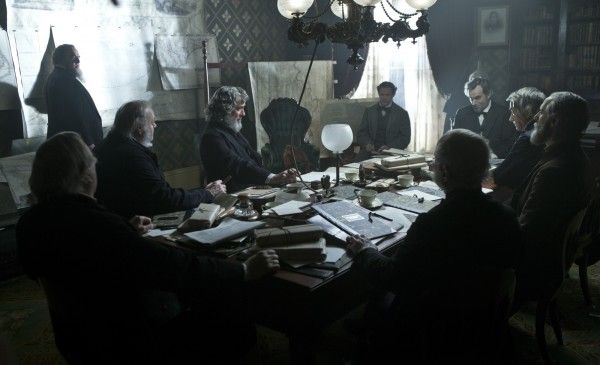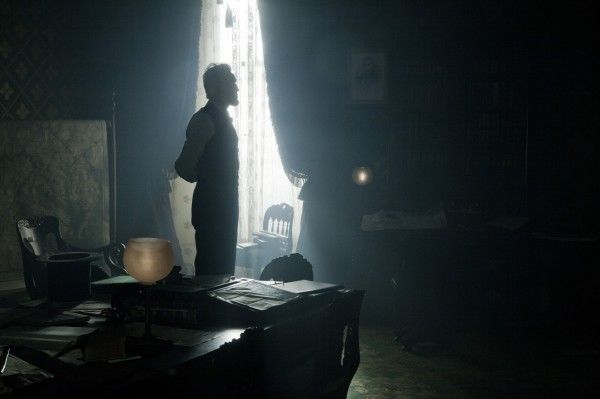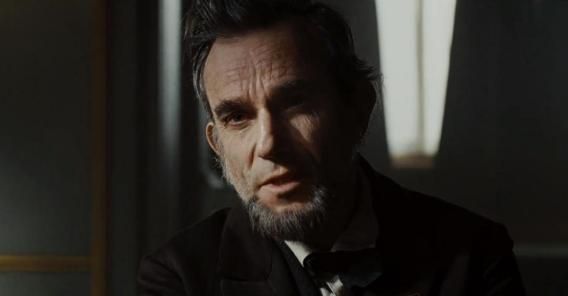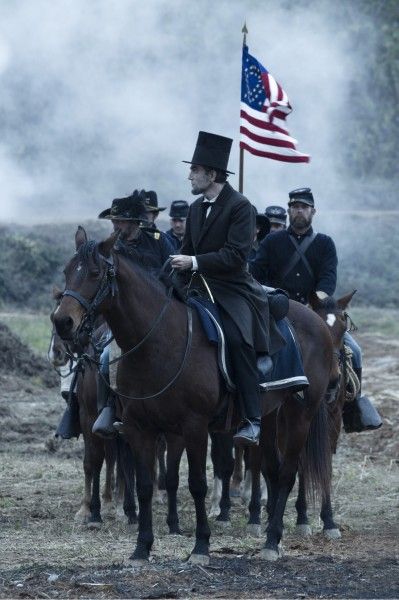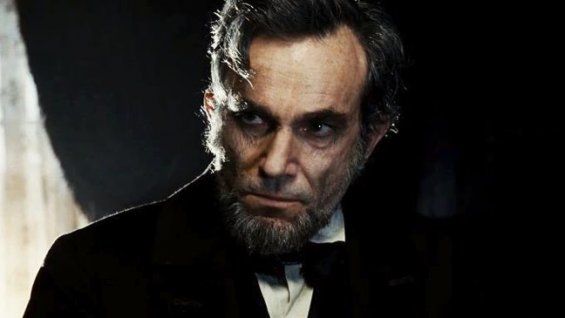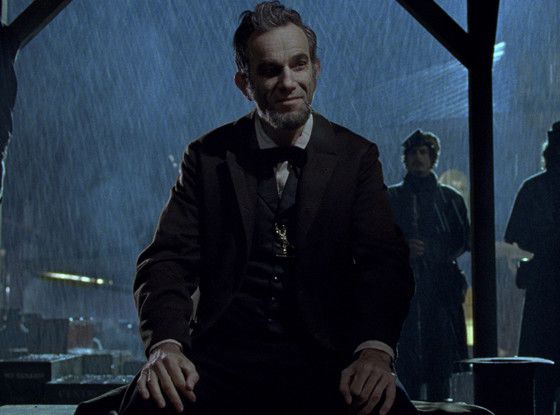In Lincoln, as the Civil War neared its conclusion in early 1865, newly re-elected President Abraham Lincoln (Daniel Day-Lewis, in a truly remarkable performance) was determined to unite Congress in passing a Constitutional amendment to abolish slavery. Facing fierce pro-slavery opposition, Lincoln employed strategy, persuasion and political muscle to get a swift and decisive victory before the impeding Confederate surrender, so as not to risk losing the opportunity to end slavery.
At the film’s press day, actor Daniel Day-Lewis and director Steven Spielberg talked about their portrait of a man considered America’s greatest leader, the greatest challenges in bringing this iconic figure to life, what they were surprised to learn about the man through their research, deciding which aspects of Lincoln’s life to include in the film, illustrating the life of the politician versus the life of the father, the incredible supporting cast, how Spielberg finally convinced Day-Lewis to sign on (Liam Neeson was briefly set to play Lincoln), and why it was important to wait until after the current presidential election to release the film. Check out what they had to say after the jump.
Question: Steven, what made this such a passion project for you?
STEVEN SPIELBERG: I’ve just always had a personal fascination with the myth of Abraham Lincoln. Once you start to read about him and the Civil War, and everything leading up to the Civil War, you start to understand that the myth is created when we think we understand a character and we reduce him to a cultural national stereotype. Lincoln has been reduced to statuary, over the last 60 years or more. There’s been more written about Lincoln than movies made about him, or television portraying him. He’s kind of a stranger to our industry and to this medium. You have to go back to the 1930s to find a movie that’s just about Abraham Lincoln. My fascination with Lincoln started as a child and got to the point where, after reading so much about him, I thought there was a chance to tell a segment of his life to moviegoers. That’s how the whole fascination began.
Daniel, what was your greatest challenge in bringing this iconic figure to life?
DANIEL DAY-LEWIS: Apart from everything, you mean? Really, the most obvious thing was trying to approach a man’s life that has been mythologized. I just wasn’t sure that I would be able to do that. I felt that I probably absolutely shouldn’t do that, and that somebody should do it instead.
SPIELBERG: It was hard to get him to say yes.
DAY-LEWIS: The wonderful surprise with was that there were many different ways in which I could do that. He welcomes you in. He’s very accessible. And that took me by surprise.
Steven, what made Lincoln a widescreen movie?
SPIELBERG: The number of characters. I had to fit them all in, and I’m not being facetious.
What did you learn about Lincoln, that you either didn’t know previously or were most surprised by, as a matter of delving into the historical materials for your research?
DAY-LEWIS: Well, I knew nothing about him, so I had everything to learn. Apart from a few images, a statue, a cartoon, a few lines from the first inaugural and a few from the Gettysburg Address, that would be my entire knowledge of that man’s life. Probably the most delicious surprise for me was the humor and discovering what an important aspect of his character that was.
Would it be fair to say it was a very tactical humor?
DAY-LEWIS: At times it could be, but not necessarily. I think it was tactical, in the political sense. At times, it was undoubtedly used in a conscious sense, for some purpose and to make some point. There were accounts of people that came to ask him a question of great importance to them, found themselves in his presence, got a handshake and a story, and were out of the room before they even realized [they never asked it]. That’s good politics. But, I think that was innately part of him.
Steven, what most surprised you about Lincoln?
SPIELBERG: There were so many things that I didn’t know about Lincoln, and there were so many different points of view about Lincoln. With over 7,000 books written, it’s hard to any find any five books that agree on every single facet of his life. But, what really surprised me about Lincoln was that, with the weight of his responsibility and the constitutional oath he took to preserve the Union, he’s the only President that had the Union ripped out from under him and torn in half. And, there was the weight of the war that began over slavery. We read all the writings about how deeply low he could get in his psyche and how depressed he could get. I don’t know if some of that depression wasn’t just deep thought, and going very, very deep into the cold depths of himself to make discoveries that would bring this war to a close and abolish slavery. But, how he didn’t just crack up in the middle of his first term, with the Civil War raging around him and over 600,000 lives lost, revised recently to be upward of 750,000 lives lost, with his wife on the edge of herself, and the loss of two sons, before our film begins, and the fact that he came through this with a steady, moral compass and an even keel just amazes me.
In taking on a particular section of Lincoln’s life, how did you decide where to stop?
SPIELBERG: There was discussion about that, but it was very, very important that we felt that Lincoln was able to ride across the battlefield outside of Petersburg, which he did, and have that almost be the epilogue, between he and [Ulysses S.] Grant (Jared Harris). And the carriage rides that the President and his wife took were often written about. I think we needed all those moments to really equip this story of Abraham Lincoln. (Screenwriter) Tony Kushner’s first draft was 550 pages long. We needed to focus it in on a working President, and a father and husband. We couldn’t just hit all the high points and give you the headlines, and not give you any sense of the depth of this character and this man.
Why is now the right time for Lincoln’s story, or this chapter in Lincoln’s story?
SPIELBERG: Well, I would have made Lincoln in the year 2000, after I met (author) Doris Kearns Goodwin. It took her a couple years to write the book. It took us more than a couple years to get the screenplay written. At one point I flirted with coming out on the 200th anniversary of Lincoln’s birth, but we weren’t ready to make the picture then. People say, “Oh, you made it because of what’s happening in politics today. No, we were ready to make it during the Bush administration. It had nothing to do with current politics. It had nothing to do with holding a mirror up to the way we conduct our business on Capitol Hill today. This was meant to be a Lincoln portrait, if you will. I think any time is the right time for a very compelling story.
With such an impressive supporting cast, was there ever any concern about bringing all these big names together and having it distract from the title character?
SPIELBERG: The actors who are in the story, some of them with long filmographies and who very well known to the American public, disappear into their characters within seconds of coming onto the screen. By the time this film is five or six minutes in, they’re all anonymous and they’re all their characters. That’s the great thing about hiring talented actors. Their job is to convince you of who they are, and that’s what I’m so proud of with this cast.
In deconstructing Lincoln’s image and icon status, you had to show him doing certain questionable things, in order to get slavery abolished. How should audiences apply that, outside of a historical context?
SPIELBERG: Desperate times require desperate measures. What Lincoln, the lobbyist for the Amendment and the manager of the Amendment did to get this passed was not illegal. It was murky, but it was also noble and grand. How they went about it was somewhat murky, but nothing they did was really illegal. What they did to gain favor and to persuade people to vote is not uncommon, in this day and age. To make a movie about a squeaky clean person whose moral principles hold him so far beyond mortal man and woman would not be interesting to me. I like the fact that there is a bit of murkiness in the politics of the 19th century, in order to do something that was necessary and long-lasting.
What led you to the decision not to depict John Wilkes Booth or the three-part assassination attempt on Lincoln?
SPIELBERG: The decision was a pretty easy one to make. Had we taken it right up to the assassination, the film would’ve, for the first time, become exploitation. And I didn’t want to go anywhere near that. That’s a very scary word, especially when you’re dealing with the history. And nothing could be gained by showing that. It was more profound for me to see what actually happened. It had nothing to do with cinema. It just had to do with not wanting to exploit the assassination, which has been depicted in other films, ad nauseam.
Steven, because we’re in a politically-charged time, people are going to look at this movie and in the context of what’s happening today. Do you have any interest in seeing how people interpret the film, in that way?
SPIELBERG: Of course! The good news is that Founding Fathers put together principles of a Democratic government that are so sound and unsinkable that the process from 150 years ago is not that much different than the process of today. I think that really is one of the values of holding up a mirror to all of us. We can only experience what we experience, and we have no frame of reference except what we read or what we view in documentaries about that time, but there are tremendous similarities between the politics then and the politics today. I’m really excited to see how deeply people will reach to contemporize our film, far beyond how it deserves to be contemporized.
One of the most relatable and human elements in the film is seeing Lincoln and his son Tad together. Was he a better dad, as he had more children?
DAY-LEWIS: It certainly seems to be true. The relationship between him and his eldest son, Robert (Joseph Gordon-Levitt), who you see in the film, was perhaps the least resolved and explored of his relationships. There was a distance there, largely because of the work that he’d been doing on the judicial circuit, which had taken him away for six months of any given year. He was also in political campaigns and then in office, and Robert was at university, so there had been a certain distance there. By the time we meet him in the story, he’d lost two sons. He had a very interesting attitude towards parenthood, which is surprisingly modern. There was a total absence of any parental authority, whatsoever. That was a conscious decision that may well have been largely influenced by the very harsh disciplinarian that he had as a father, himself.
His experience of childhood was a very bleak, very difficult one. As many young people were, at that time, from the moment that they moved from Kentucky to Indiana he and his sister were struggling to survive on their own. They just had to exist in the wilderness and get on with it. I think he had to grow up very quickly. It was no love lost. So, there was absolute chaos in the White House. He enjoyed, so much, watching the chaos that Tad created. He would be armed to the teeth, with all kinds of weapons, cannons, flint locks and swords. He had a goat-drawn carriage and was always careening about the corridors of the White House. I think Lincoln really enjoyed watching and observing the bedlam that ensued from his all of his adventures, but it was also just pure love. I’m not saying that it was good parenting to just let him do whatever the hell he wanted, but it was an interesting choice to make, at that time and in that place. During that part of the story, Mary was more or less an absentee parent. Therefore, the bond between Tad and Lincoln became so very precious to both of them.
Daniel, how deep was the depth of your reluctance to take on this role? And Steven, how challenging was the process of finally wooing him into saying yet?
DAY-LEWIS: Well, I don’t think I ever did know that it was the right choice, but I ran out of excuses, at a certain point. Steven put the idea in front of me and it was not that I didn’t take it seriously, from the word go, but it seemed inconceivable to me that I could be the person to help him do this thing that he wished to do. Least of all, did I want to be responsible for irrevocably staining the reputation of the greatest President this country’s ever known. It was not just in a self-serving way, but quite literally it seemed to me a very difficult thing to try to tell this story in such a way that it could live. I just really felt that I wasn’t the person to do that.
SPIELBERG: But I felt he was, so I really tried. I met Daniel eight years ago, and couldn’t get him to agree to come down the road with me. Tony Kushner was not the first person to attempt to tell a story about Abraham Lincoln, for me to direct. Originally, the film was more about the Civil War and all the battles than it was about the Presidency. So, when Tony had written his draft, that was the first shoe in the door that really got us together in Ireland, for the first time, to talk. It was almost like a feasibility study, to see whether Daniel would allow himself to go near a script that was clearly on the verge of brilliance, at that point, without putting any extra pressure on him. I didn’t say this to anybody, but if he had finally and ultimately said no, I would never have made the movie. It just wouldn’t have been in my life, anymore. It’d be gone.
DAY-LEWIS: For me, even if nothing had come from that meeting, it still would have left me with a really wonderful memory of the time spent talking about Lincoln, with Steven and Tony, for whom it had become such an important part of their lives. Reading Tony’s script, and discussing how and what it might become, if Tony were to carry on with working on it, because he more or less stopped writing it, at that time, and it was still an incomplete vision. And then, when Tony went away to continue, I read Doris’s book, and that really became the platform for me, as it had been for Steven and Tony. I could believe that there was a living being to be discovered there because she makes that so beautifully clear in her book.
Steven, at one point, you were talking to Liam Neeson about this role, who would have been great, in his own way. Do you just feel like things worked out right, in the end?
SPIELBERG: Yes, but that’s not up to me. The planets lined up in a good position, but that was out of my control and not even on my mind, at that the time. At that point, I had just accepted the fact that I would make Lincoln, if Daniel decided to play him, and I would not make Lincoln, had Daniel decided not to play him. It was as simple as that. It had gotten to that point, with me.
DAY-LEWIS: I feel I have to say something because Liam is a friend of mine, and Liam was committed to Lincoln, for a period of time, and then there came a moment when, for reasons that were clear to both of them, that Liam needed to do other things and Steven was going to do other things. But, for that period whilst Liam was committed to the project, it wouldn’t have occurred to me to consider it. From the moment that Liam decided it was not no longer something that he would be engaged with, he had been in touch with me about it and had given me incredible encouragement, in the most generous way. He encourage me when I was undecided about whether or not I should do it. I just felt I should say that.
SPIELBERG: So, the timeline was simply that I had approached Daniel first, to play Lincoln, but he turned me down. That was about eight or nine years ago. And then, Liam and I had a very healthy flirt about possibly doing it together. And then, we both decided to do other things. And then, I came back to Daniel. So, that’s the timeline.
DAY-LEWIS: And I can say, unequivocally, that I know for a fact that Liam’s Lincoln would have been something that I would have wished to see. These things are haphazard. It worked out this way, but it could easily have worked out the other way, and I think Liam would have been quite wonderful.
Steven, did you intentionally keep this from being released before the election?
SPIELBERG: Very simply, because there’s a lot of confusion about the political ideologies of both parties, which have switched 180 degrees in 150 years, it’s just too confusing. Everybody claims Lincoln as their own, and everybody should claim Lincoln as their own because he represents all of us. What he did was provide the opportunities that all of us are enjoying today. So, I just wanted people to talk about the film, and not talk about the election cycle. I thought it was safer to let people talk about the film during the election cycle, but that the actual debut of the film should happen after the election’s been decided. That was my feeling.
Lincoln is now playing in limited release.

